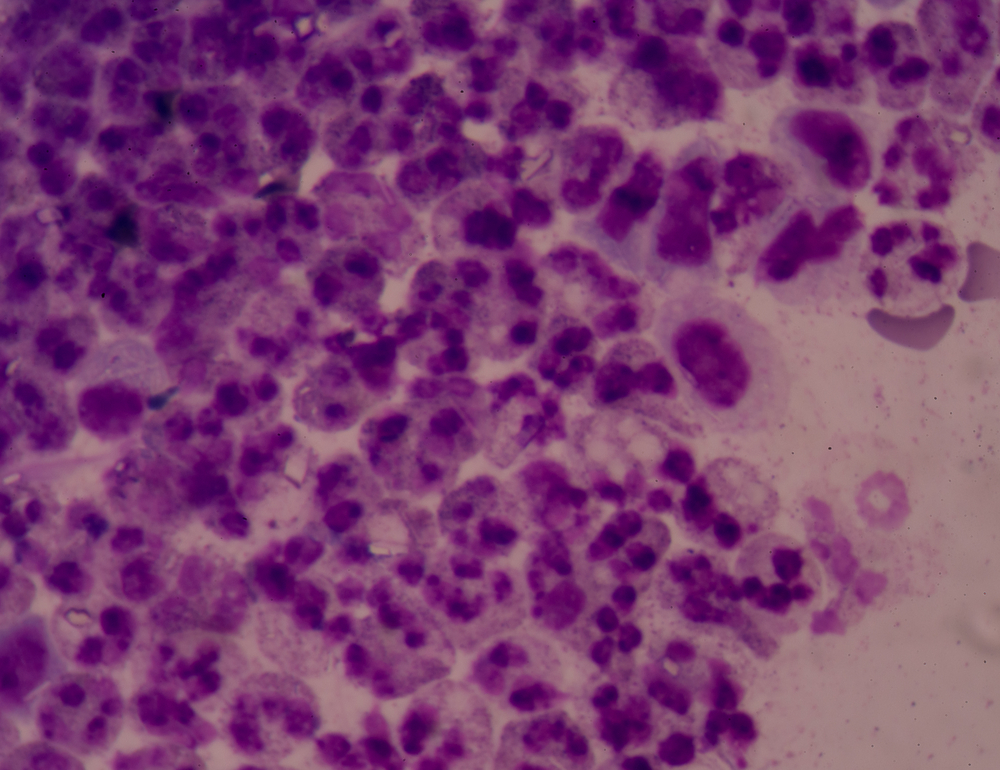
New research from University of Wisconsin Carbone Cancer Center members in the Department of Human Oncology could lead to better outcomes for patients with head and neck, lung and triple-negative breast cancer, particularly those resistant to common therapies.
The signals that regulate a common growth pathway, implicated in many solid tumor types, are more precisely understood in the new study. The class of proteins known as receptor tyrosine kinases, or RTKs, are best studied for how they receive pro-growth signals from outside the cell and transmit that signal internally, telling the cell to survive, divide and spread.
RTKs, which were thought to function only on the cell’s surface, have more recently been found inside the cell’s nucleus, where they turn on genes involved in tumor growth and survival.
“Nuclear localized RTKs can mediate resistance to therapeutics used to treat cancer, such as radiation therapy, chemotherapy or antibody-based therapies that directly block RTKs on the cell surface,” said Dr. Toni Brand, a former UW-Madison graduate student in Dr. Deric Wheeler‘s lab and lead author of the study. “We wanted to identify how RTKs move to the nucleus so that we can design therapies to block their transport and hopefully enhance the efficacy of antibody-based therapies in the future.”
Wheeler’s group studies an RTK known as EGFR, a protein that promotes the growth of many tumor types. To better understand how cells develop resistance to cancer therapies, the researchers used cells that have developed resistance to the anti-EGFR drug cetuximab. Cetuximab is a FDA-approved antibody that sticks to EGFR outside the cell and, if the cell has not developed resistance, blocks it from receiving and transmitting growth signals.
In earlier studies, Wheeler’s group found that cancers develop cetuximab resistance via several mechanisms. First, they found that resistant cells have become dependent on EGFR within the nucleus, where it activates growth and survival genes. More recently, they found that another RTK, called AXL, is overexpressed in resistant cells and activates EGFR even when cetuximab is trying to block the signal.
“Based on our previous work identifying a role for both AXL and nuclear EGFR in cetuximab resistance, we wanted to determine if there was a molecular link between these two resistance pathways,” Brand said.
By manipulating the levels of AXL and other proteins in cells growing in the lab, the research team identified a new role for AXL in which it also regulates the trafficking of EGFR to the nucleus, suggesting that AXL could influence resistance to cetuximab by increasing the amount of EGFR in the nucleus.
“Not only does AXL regulate tumor growth pathways by functioning as an RTK on the cell surface, it also regulates the accumulation of EGFR and other RTKs in the nucleus,” Brand said. “Our work provides rationale for why we should therapeutically target AXL, because it plays a more diverse role in tumor biology than we originally thought.”
Though Wheeler’s group and others had already found a role for AXL in cancer, this new study provides important details as to how the protein regulates resistance to anti-cancer treatments. So while AXL-targeting therapies are currently in clinical trials, Wheeler knows that having a clear picture of how AXL drives resistance is critical in staying one step ahead.
“The current study is exciting because it identifies AXL as a key mediator of resistance pathways that, collectively with other studies, suggests that AXL may be a potent molecular target in resistant cells,” Wheeler said. “A story is beginning to emerge where we are understanding new and novel functions of RTKs within the cell that can drive resistance to cancer therapies, and we hope this study can influence the clinical advancement of AXL inhibitors for the treatment of patients.”




